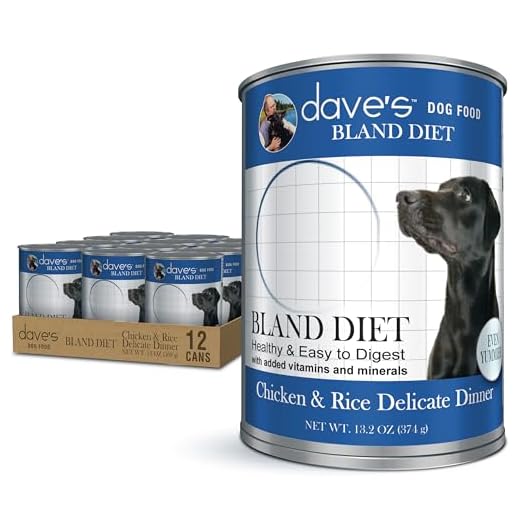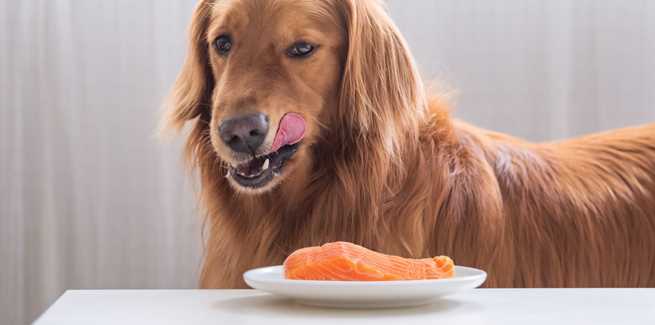





Salmon poisoning disease is a potentially deadly condition that affects dogs who consume raw or undercooked salmon, trout, or similar fish. The disease is caused by a parasite known as Neorickettsia helminthoeca, which can be frequently found in Pacific Northwest waters.
However, cooked salmon is generally safe and does not pose a significant risk of salmon poisoning disease for dogs. Cooking the fish adequately kills the parasite and eliminates the threat of infection.
While raw or undercooked salmon should be avoided, fully cooked salmon can be a beneficial addition to a dog’s diet. It is an excellent source of lean protein, omega-3 fatty acids, and essential nutrients that contribute to a healthy coat, immune system, and overall well-being.
Nevertheless, it is always advisable to consult with a veterinarian before introducing any new food into your dog’s diet, including cooked salmon. Your vet can provide personalized advice based on your dog’s specific needs and health conditions.
Can Dogs Get Salmon Poisoning from Cooked Salmon?
Salmon poisoning disease (SPD) is a potentially fatal condition that can affect dogs who consume raw or undercooked salmon, trout, or other fish that have been infected with a parasite called Neorickettsia helminthoeca. However, simply cooking the salmon can eliminate the risk of salmon poisoning for dogs.
The cooking process kills the parasite, making the salmon safe for dogs to consume. When properly cooked, salmon is a nutritious source of protein and omega-3 fatty acids for dogs, providing various health benefits including support for the immune system, skin, and coat.
It is important to ensure that the salmon is thoroughly cooked before feeding it to your dog. The internal temperature should reach at least 145°F (63°C) to effectively kill any potential parasites. Additionally, you should avoid using any seasonings or additives that may be harmful to dogs, such as onions or garlic.
While cooked salmon is generally safe for dogs, it is still important to feed it in moderation. Too much salmon can lead to digestive upset, including diarrhea or vomiting, due to its high fat content. Additionally, some dogs may be allergic to fish, so it is important to observe your dog for any signs of an adverse reaction after consuming salmon. If you notice any unusual symptoms, it is best to consult with a veterinarian.
In conclusion, dogs can safely enjoy cooked salmon without the risk of salmon poisoning. However, it is essential to cook the salmon thoroughly and feed it in moderation to avoid potential digestive issues. As always, it is recommended to consult with a veterinarian before introducing any new food into your dog’s diet.
Symptoms and Risks

If a dog consumes raw or undercooked salmon infected with the Neorickettsia helminthoeca bacteria, it may develop salmon poisoning disease. This disease can be life-threatening if not treated promptly.
The symptoms of salmon poisoning in dogs include:
- Loss of appetite
- Vomiting
- Diarrhea
- Dehydration
- Lethargy
- Fever
- Swollen lymph nodes
If your dog shows any of these symptoms after consuming raw or undercooked salmon, it is important to seek immediate veterinary care.
Dogs with salmon poisoning disease need to be treated with antibiotics to eliminate the bacteria and prevent further complications.
Risks of feeding cooked salmon to dogs:
While cooked salmon is generally safe for dogs to eat, it is important to remember that improper preparation and seasoning can pose risks. Some potential risks of feeding cooked salmon to dogs include:
- Seasonings: Certain seasonings like garlic, onion, and salt are toxic to dogs and should never be added to cooked salmon for their consumption.
- Bones: Cooked salmon can contain small bones that may pose a choking hazard or cause intestinal blockage if ingested by dogs. It is important to thoroughly remove all bones before feeding salmon to dogs.
- Overfeeding: Excessive consumption of cooked salmon can lead to gastrointestinal upset, including vomiting and diarrhea. It is important to feed cooked salmon to dogs in moderation.
If you choose to feed cooked salmon to your dog, it is crucial to follow proper preparation methods and avoid any potentially harmful ingredients. Always consult with your veterinarian before making significant changes to your dog’s diet.
Prevention and Treatment
To prevent dogs from getting salmon poisoning, it is important to avoid feeding them raw or undercooked salmon. Cooking the salmon thoroughly will kill the Neorickettsia helminthoeca bacteria that causes the disease. It is also advisable to avoid feeding dogs any other raw fish or other raw seafood.
If your dog has eaten raw or undercooked salmon or any other fish that may be infected, it is crucial to seek veterinary attention immediately. Early treatment is essential to prevent the bacteria from spreading and causing severe illness.
The treatment for salmon poisoning involves administering antibiotics to eliminate the bacteria. The most commonly used antibiotic is doxycycline. Your veterinarian may also prescribe additional medications to help alleviate symptoms such as diarrhea, vomiting, and dehydration.
It is important to follow the veterinarian’s instructions regarding the duration of treatment, as stopping the medication prematurely can lead to a relapse of the infection. Additionally, supportive care such as intravenous fluids may be necessary to restore hydration and electrolyte balance in severe cases.
During the recovery period, it is recommended to feed your dog a bland and easily digestible diet. This could include boiled chicken and rice. Avoid offering any fatty or heavily seasoned foods during this time, as they can worsen gastrointestinal symptoms.
Regular veterinary check-ups are important to monitor your dog’s progress and ensure complete recovery. It is also essential to practice good hygiene, such as washing your hands thoroughly after handling raw fish, to prevent the spread of bacteria to yourself or other pets.
By being cautious about the types of fish you feed your dog and ensuring prompt veterinary attention if ingestion of raw fish occurs, you can effectively prevent and treat salmon poisoning in dogs.
Dietary Recommendations
When it comes to feeding your dog salmon, it is important to follow certain dietary recommendations to ensure their safety and well-being. While cooked salmon is generally safe for dogs to consume, there are a few guidelines to keep in mind.
1. Avoid seasonings and additives
When preparing salmon for your dog, make sure to remove any seasoning or additives that could be harmful. Salt, spices, and other flavorings intended for human consumption may not be suitable for dogs and could upset their digestive system.
2. Serve in moderation
While salmon can be a healthy addition to your dog’s diet, it should always be served in moderation. A small portion of cooked salmon as an occasional treat or mixed with their regular food is generally sufficient. Too much salmon can lead to an excessive intake of certain nutrients like omega-3 fatty acids, which may cause digestive issues.
3. Stay away from raw salmon
Raw salmon carries a higher risk of bacterial and parasitic infections, including salmon poisoning disease. To avoid this potential danger, it is best to always cook salmon thoroughly before feeding it to your dog. Cooking the salmon will help eliminate any harmful bacteria and parasites that may be present.
Overall, feeding your dog cooked salmon can be a healthy and nutritious option, as long as you follow these dietary recommendations. Remember to consult with your veterinarian before making any significant changes to your dog’s diet to ensure their individual needs are met.
| Do’s | Don’ts |
|---|---|
| Do remove any seasonings or additives from cooked salmon | Don’t feed your dog raw salmon |
| Do serve salmon in moderation | Don’t give your dog salmon with excessive seasonings or spices |
| Do consult with your veterinarian before making dietary changes | Don’t rely solely on salmon as your dog’s main source of nutrients |
Safe Alternatives for Dogs
If you’re concerned about feeding your dog cooked salmon due to the risk of salmon poisoning, there are several safe alternatives that you can consider:
|
1. Cooked Whitefish: Instead of salmon, you can feed your dog cooked whitefish. Whitefish is a safe and healthy alternative that is rich in omega-3 fatty acids, just like salmon. |
|
2. Fish Oil Supplements: If you want to provide your dog with the beneficial omega-3 fatty acids found in salmon, you can consider giving them fish oil supplements. These supplements are specifically formulated for dogs and can be a safer option. |
|
3. Commercial Dog Food: Many commercial dog foods contain fish ingredients that are safe for dogs to consume. Look for dog food brands that include fish as a main ingredient to ensure your dog gets the necessary nutrients. |
When introducing any new food to your dog’s diet, it’s always important to consult with your veterinarian to ensure it is safe and appropriate for your dog’s specific needs.
Question-answer
Can dogs get salmon poisoning from cooked salmon?
No, dogs cannot get salmon poisoning from cooked salmon. The cooking process kills the bacteria that causes the disease.
Is it safe to feed dogs cooked salmon?
Yes, it is safe to feed dogs cooked salmon. However, you should make sure it is properly cooked and does not contain any seasoning or spices that can be harmful to dogs.
Can raw salmon make dogs sick?
Yes, raw salmon can make dogs sick. Raw salmon can contain bacteria and parasites that can cause various diseases in dogs, including salmon poisoning.
What are the symptoms of salmon poisoning in dogs?
The symptoms of salmon poisoning in dogs include vomiting, diarrhea, loss of appetite, fever, swollen lymph nodes, and dehydration. If left untreated, it can be fatal.
How is salmon poisoning in dogs treated?
Salmon poisoning in dogs is treated with antibiotics to kill the bacteria. In addition, supportive care such as fluid therapy and medications to control vomiting and diarrhea may be necessary. It is important to seek veterinary treatment as soon as possible.






